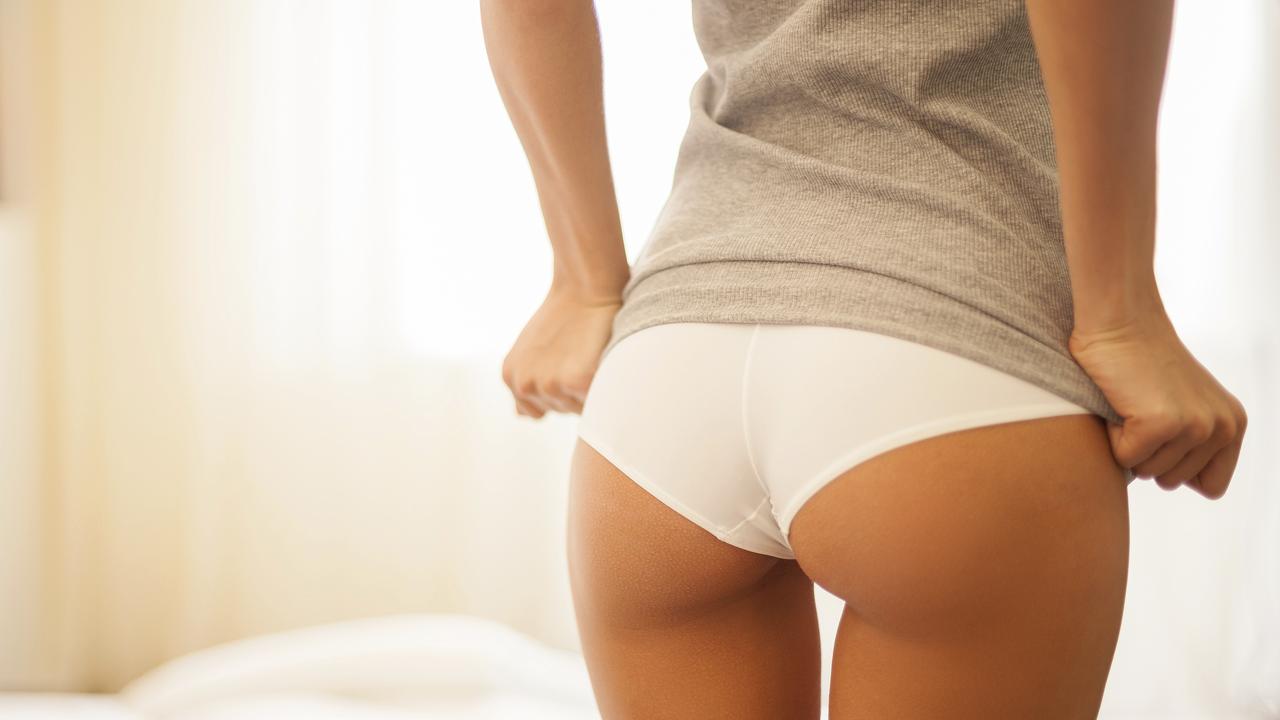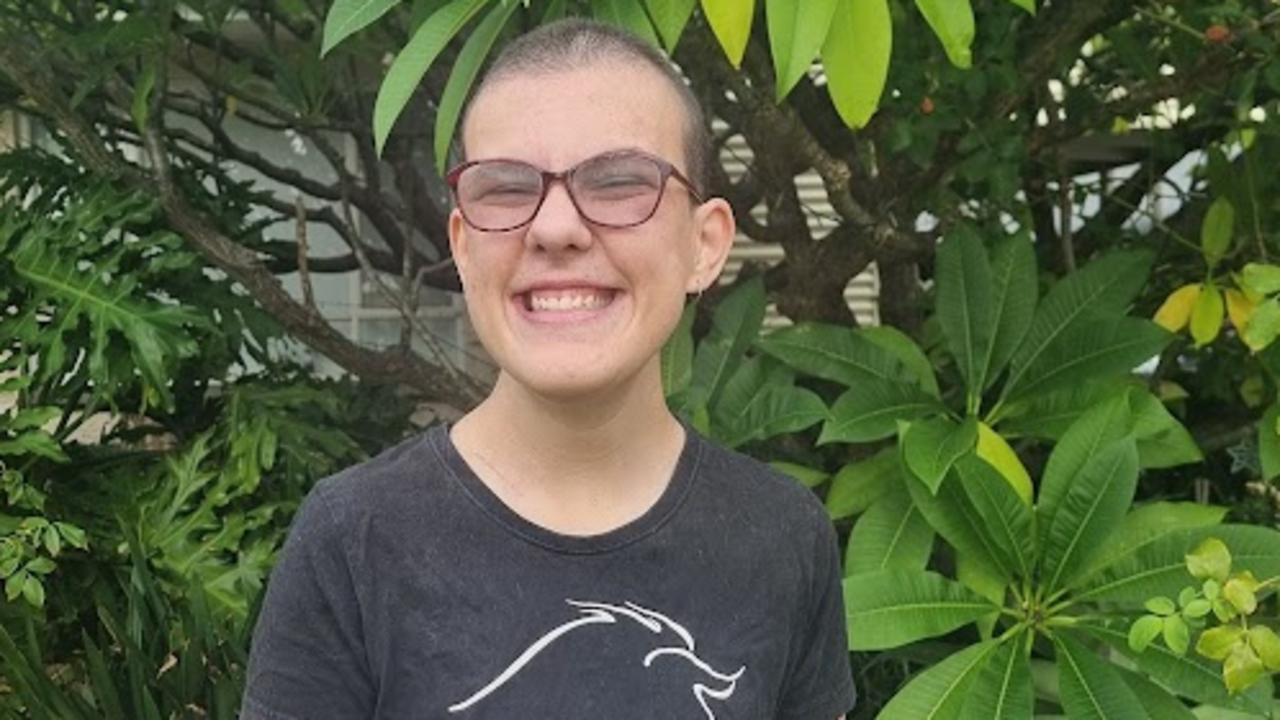Clive Palmer donates $1 million to Australian research as world races to find coronavirus vaccine
A University of Queensland team is among more than 35 research groups around the world desperately working to find a vaccine for COVID-19. It comes as Clive Palmer has been revealed as the mystery man behind a $1 million donation towards research.

Illness
Don't miss out on the headlines from Illness. Followed categories will be added to My News.
- Coronavirus mega guide: What you need to know
- Bali coronavirus warning: What to do if you’re going on holiday
More than 35 research groups are racing to produce a vaccine for COVID-19 and the first human trial of a candidate vaccine began in the US this week.
A team at the University of Queensland is poised to start animal testing of its coronavirus vaccine.
Griffith University announced today it has signed a memorandum of understanding with Queensland-based Luina Bio to work on a vaccine against COVID-19.
Griffith University’s Centre for Cell Factories and Biopolymers, at the Griffith Institute for Drug Discovery has developed a rapid response vaccine platform technology that enables the design and manufacture of a particulate viral vaccine.
“The key features of this vaccine platform technology allow for low cost, and large-scale manufacturing of new pilot vaccine candidates ready for pre-clinical and clinical testing against an emerging viral threat,” Les Tillack, CEO of Luina Bio, said.
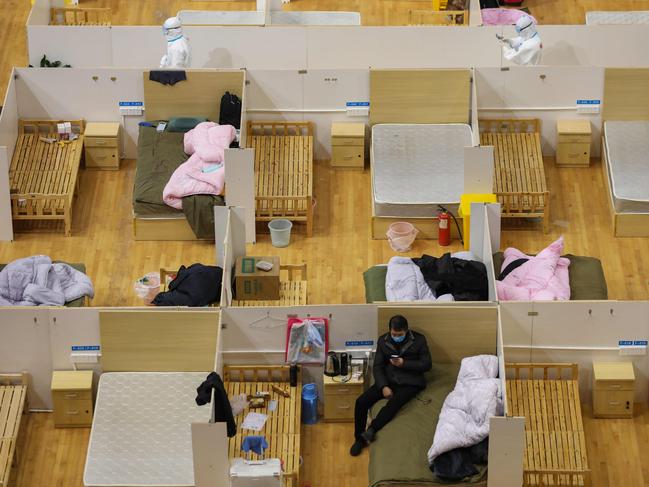
China’s National Health Commission is working with eight research teams to develop vaccines which the centre’s director says could enter clinical trials next month.
Pharma giant Pfizer announced on Tuesday that it’s working on a potential RNA type COVID-19 vaccine with German company BioNTech.
Novavax is developing a vaccine by extracting the genetic code for the protein spike on the virus that causes COVID-19 which is the part of the virus most likely to provoke an immune reaction in humans.
Moderna which began the first human clinical trial this week and US company, CureVac are building COVID-19 vaccines out of messenger RNA.
PALMER SPLASHES $1M ON CURE RESEARCH
Meanwhile, a donor once rumoured to be Tom Hanks who gave $1 million to Aussie researchers working on a coronavirus cure has been revealed as mining magnate Clive Palmer.
Director of clinical research at the University of Queensland Professor David Paterson told 2GB radio’s Alan Jones today Mr Palmer had splashed the cash as researchers hope to begin clinical trials in the next two weeks.
Researchers are working to establish whether a HIV drug is effective in treating COVID-19 after Chinese patients revealed to Gold Coast Hospital doctors that it was being used in China.
“We had a mystery donor and there was a little bit of speculation it was Tom Hanks. But we do understand it was Mr Palmer,” Prof Paterson told 2GB.
Prof Paterson, who works at the Royal Brisbane and Women’s Hospital, said the first five Chinese patients who went to Gold Coast Hospital took the drug and recovered.
“Now, it’s a bit sort of nuanced because only one to two per cent of people die, 80 per cent of people will do really well. So I could say, you know, I’ve given snake oil to 20 people, none of them died, so snake oil must be the COVID-19,” he said.
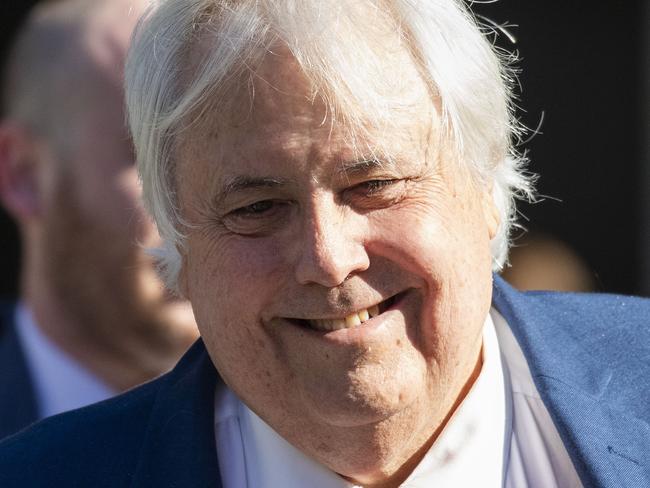
Prof Paterson said he originally planned to start their drug trial with major hospitals across Australia but he has had interest from regional hospitals who want to be involved.
He said they hope to have 50 hospitals across Australia participating in the clinical trials, reaching more than 2000 people.
“So what we’re going to have to do is do it in more than 2000 people across Australia to really rigorously prove that it works,” he said.
He added an old malaria drug called chloroquine also worked “very well” against coronavirus.
“So we’re going to put that head to head versus the HIV drug. And then as a third, we’re going to put both of them together,” he said.
“We really want to push the envelope and find out what exactly is the best way to treat Australians with coronavirus.”
The HIV drug is taken as a tablet, which Prof Paterson said was an “amazing thing”.
“Down the road, if we do find it effective here, there is the potential that it could be prescribed by GP,” he said.
UK RESEARCHERS WORK ON RAPID TEST
A UK company claims to have developed a COVID-19 test that takes just ten minutes to determine whether someone has COVID-19.
Unlike existing tests that use samples from a throat swab to test for the virus this test uses a prick of blood.
The blood is placed on a plastic cassette similar to a pregnancy test and produces a result within ten minute according to SureScreen which manufactures it.
The test looks for antibodies in the blood that are specific for immune glycoproteins that are produced by infected individuals in response to the new coronavirus, the company said.
The test has been trialled on 181 COVID-19 cases.
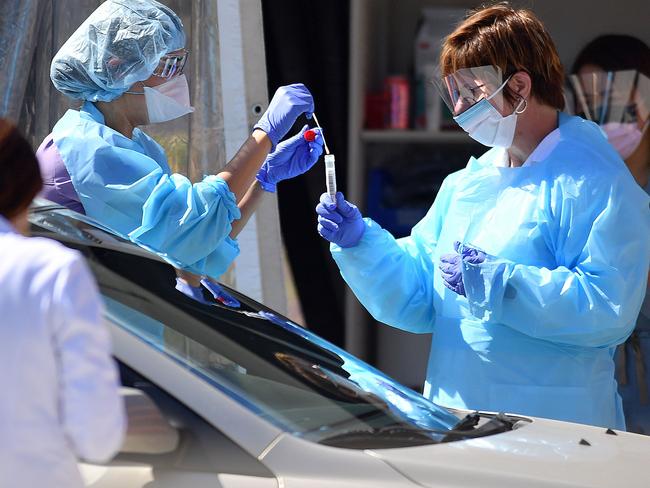
“This is something we are looking at, but we would recommend any non-negative results are referred to a medical health practitioner through the NHS who have access to confirmatory testing through a laboratory.”
The rapid test identifies the body’s response to coronavirus 3-7 days after infection, the company said.
“Implementing rapid screening for COVID-19 has huge time and cost savings when compared to laboratory screening, and will help to control the spread of the virus by identifying infection before symptoms appear,” the company said.
“The Test Cassette is easy to use, needing only a finger-prick sample to function, much like a home blood glucose test.
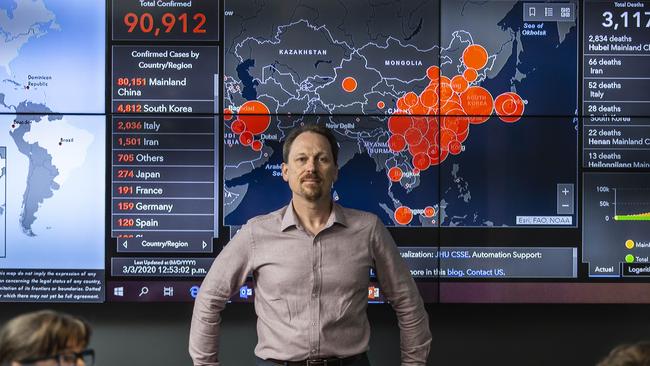
As well as whole blood, the cassette can also be run with serum or plasma samples.
Meantime, US company NanoViricides Inc has announced it has completed the synthesis of a number of drug candidates for testing against COVID-19 in just a few weeks after identifying a molecule that binds to the virus.
The Company has an inventory of novel custom chemicals it is testing to see if they work against the virus.
“There can be no assurance that any of these candidates would show sufficient effectiveness and safety for human clinical development at this time,” it said in a statement.
The Company has acquired two different, low-threat circulating coronaviruses to enable testing of drug candidates.
One of these coronaviruses, namely NL63, uses the same ACE2 receptor on human cells as COVID-19 although it does not cause a similar severe disease in humans, it said.
“If the Company’s test candidates are effective against these cell culture studies against coronaviruses, then that would provide
AUSTRALIAN VACCINE BREAKTHROUGH
The immune responses from one of Australia’s first coronavirus patients has been mapped, which could lead to a vaccine.
Researchers at Melbourne’s Peter Doherty Institute for Infection tested at four different points in time blood samples of an otherwise healthy woman in her mid-40s who required hospital admission.
The findings have been published in Nature Medicine.
Research fellow Oanh Nguyen says it is the first time broad immune responses to COVID-19 have been reported.
“Three days after the patient was admitted, we saw large populations of several immune cells, which are often a telltale sign of recovery during seasonal influenza infection, so we predicted that the patient would recover in three days, which is what happened,” Dr Nguyen said.
By dissecting the immune response, the researchers might now be able to find an effective vaccine.
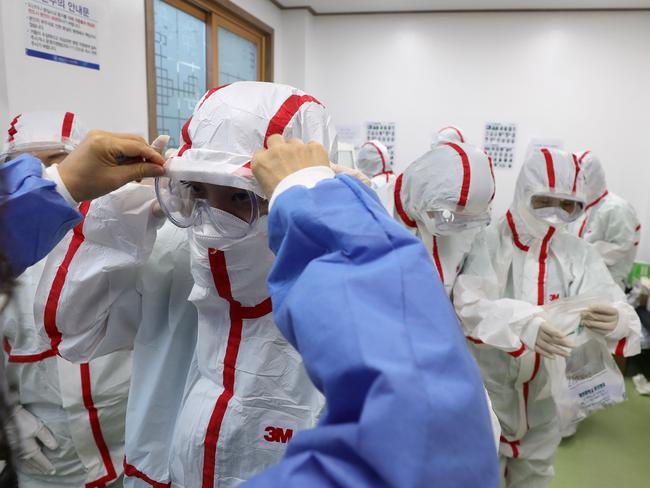
US ANNOUNCES VIRUS TRIAL
It comes as 45 young healthy people will receive the first dose of a candidate vaccine against COVID-19, US President Donald Trump has announced.
The vaccine creates by biotechnology company Moderna will take place at the National Institute of Allergy and Infectious Diseases in Seattle in the US.
The vaccine harness’ the body’s cells to produce little pieces of virus that are then recognised by the immune system.
The theory is that it will then trigger the immune system without causing illness.
Vaccines are usually trialled in animals before being tested on humans but this stage has been skipped in the race to combat the virus shutting down the world economy.
Participants in the trial will reportedly be paid a $1100 for their participation.
“Finding a safe and effective vaccine to prevent infection with SARS-CoV-2 is an urgent public health priority,” said NIAID Director Anthony S Fauci, M.D said on a statement on the organisations website.
“This Phase 1 study, launched in record speed, is an important first step toward achieving that goal,” he said.
The experimental vaccine was developed using a genetic platform called mRNA (messenger RNA), which directs the body’s cells to express a virus protein that, hopefully, will elicit a robust immune response. The mRNA-1273 vaccine has been tested in animal models and has demonstrated some protective ability.
Prior to the COVID-19 outbreak, NIAID and Moderna scientists had been working together on an investigational vaccine to protect against Middle East respiratory syndrome (MERS), another type of coronavirus. Once the genetic sequence information for the novel SARS-CoV-2 virus became available, the scientists were able to apply that to the existing mRNA platform to create the investigational mRNA-1273 vaccine.
9. It is important to note that a COVID-19 vaccine will not be widely available to the public for at least a year and likely longer. Clinical testing to establish a vaccine’s safety and efficacy takes time.
UK SCIENTISTS LOOKING FOR VACCINE VOLUNTEERS
Scientists racing to find a cure for the new coronavirus are seeking two dozen of the world’s bravest volunteers to help – and be paid handsomely for it.
hVIVO’s laboratory at Queen Mary BioEnterprises Innovation Centre in East London is offering more than $A6947 to volunteers to be infected with a less harmful form of COVID-19, as part of a global experiment.
Participants will be regularly monitored by doctors in protective gear while in quarantine for 14 days, The Sun reports.
hVIVO is currently only offering this trial to healthy UK residents, who will need to undergo a screening for suitability and final screening after the trial has completed – typically 28 days after it ends.
Testing will begin once hVIVO has secured permission from the UK’s Medicines and Healthcare products Regulatory Agency (MHRA).
TRIAL AND DRUG COULD BE APPROVED
The outcomes of the first trial of a promising treatment for COVID-19 will be reported within weeks and the drug could be approved for use in China as early as May and Australia soon after.
The broad spectrum antiviral treatment Remdesivir is being employed against the virus in two clinical studies involving 760 people in China and results will be reported in late April.
In January the experimental drug was used on a 35-year-old man who was the first reported US case of COVID-19.
He was given the drug on the seventh day of his illness and the next day showed significant improvement.
His symptoms eventually disappeared researchers reported in the New England Journal of Medicine.
In February, Chinese researchers reported in the journal Cell Research that Remdesivir was “highly effective in the control of 2019-nCoV infection” in test tubes.
World Health Organisation or WHO Assistant Director-General Bruce Aylward said after a recent trip to Beijing “there is only one drug right now that we think may have real efficacy and that’s Remdesivir”.
The treatment was developed by Gilead Sciences for the 2014 West African Ebola virus epidemic but it did not work well against that virus however, it caused few side effects.
If the treatment is found to work against COVID-19 the challenge will be to get it quickly approved for use and subsidised in Australia.
There are a number of mechanisms available to the federal government to do this.
The medicines regulator the Therapeutic Goods Administration could give Remdesivir provisional registration or put it on a priority pathway.
Alternatively it could be made available to doctors under a special medicines access scheme.
“TGA is very interested in the results of these clinical trials of remdesivir in COVID-19 infections in China. Steps are being put in place to ensure rapid international collaboration on the evaluation of these data, as it becomes available,” a spokesman for the Department of Health said.
MORE NEWS
Fifty-five medicines in short supply as coronavirus bites
The shock drug used to treat coronavirus in Australia
Doctors paid to treat coronavirus over the phone
If it was unable to be quickly placed on the national medicines subsidy scheme it would be funded by public hospitals on a 50-50 share basis with the states under special coronavirus funding announced by the federal government this week.
Doctors on the Gold Coast are using an existing and approved HIV treatment Kaletra (Lopinavir combined with ritonavir) to treat some severely ill coronavirus patients.
This treatment is also being trialled on coronavirus patients in China.
Three Chinese patients treated with the drug in January recovered and there are reports that 20 COVID-19 patients admitted to other hospitals in China tested negative for the virus after taking this treatment.
The Journal of Korean Medical Science reported last month that the virus almost disappeared in a 54-year old male with COVID-19 after he was given Kaletra.
China is also trialling chloroquine, a malaria drug that killed off the new coronavirus in test tubes.
Some COVID-19 patients have been treated with blood plasma taken from people who have recovered from COVID-19.
The theory is that this will give them the antibodies to the virus built up in the person who fought off the virus.
Two stem-cell trials are also under way including a bizarre trial using stem cells derived from menstrual blood.
Professor Raina Macintyre, head of the Biosecurity Research Programat the Kirby Institute said the drugs that are being trialled in China are existing drugs for other viruses, being repurposed.
“The most promising seems to be Remdesivir,” she said.
“We do have processes for fast tracking, but the results of the clinical trials are not yet known,” she said.
Originally published as Clive Palmer donates $1 million to Australian research as world races to find coronavirus vaccine

